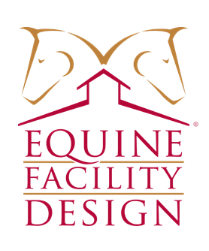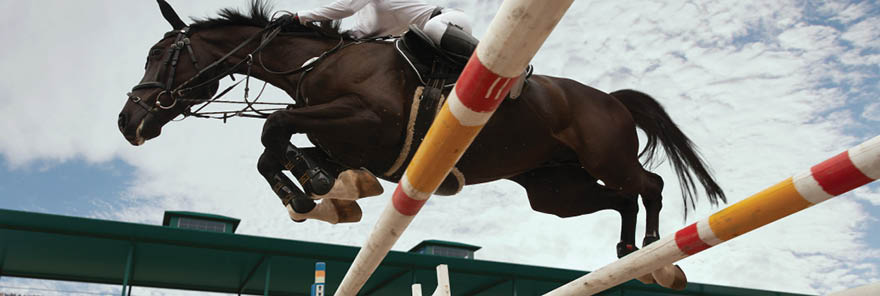Organizations can no longer deny that a focus on diversity and inclusion is essential to succeed and flourish, and the equestrian industry is no exception to this new standard. Unfortunately, the high cost of participating in equestrian sports means that it has been, for a long time, an activity reserved for the elite of predominantly white background. Today, many equestrians and organizations are advocating to promote inclusion and diversity in the horse world, in the hopes of one day making equestrianism a sport accessible for all.
In 2020, the US Equestrian Federation (USEF) publicly released the USEF Member Racial Demographics membership trend (2000-2019). The data showed that non-white equestrians made up only 10% of equestrians, while black equestrians made up less than 1% of the total number of USEF registered members.
Many prominent equestrian magazines around the world, including Horse and Hound and Equus Magazine have also picked up on the disparity. Even the fashion staple ELLE magazine published an article about “Who Gets to Be an Equestrian” , highlighting the inequalities and exceptionally high barriers to entry of the sport, which are especially pronounced for under-represented minorities.
Breaking down barriers of ethnic diversity and promoting inclusion:
Breaking down the barriers of diversity means providing new and equal opportunities for BIPOC and other under-represented communities to integrate the equestrian world. For many, identifying to someone in their community who has achieved success can be an important source of inspiration. In the US, one of the prominent figures in the equine world is Anna Buffini, a black US Grand Prix dressage rider. Anna currently ranks 78 on the FEI dressage world ranking and is a strong advocate to break down racial barriers in the horse world. In the UK, young rider Khadijah Mellah was the first jockey to ever wear a hijab during a competitive horse race. Khadijah won the Magnolia Cup in 2019 as she inspired many people around the world to pursue their dreams regardless of race, religion, or background.
In America, the USEF has released a Diversity, Equity, and Inclusion Action Plan, which depicts strategies to tackle diversity, equity, and inclusion in equestrian sports. One of these strategies include implementing a “Comprehensive Marketing Plan Harnessing the Power of Images and storytelling”, which aims to change the narrative around “what an equestrian is and can be”. Indeed, by reshaping the way equestrian sports are portrayed in the media, in marketing, and in movies, we can begin to move away from the traditionally held misconception of what equestrian sports look like. For example, the movie Concrete Cowboys (2021) has helped shed a light on the inequalities faced by many African-Americans, who have been an integral part of Western cowboy culture throughout history, while being traditionally under-represented in the media and in other equine sports.
What can we do as individuals to support these efforts?
In July 2021, USEF announced that it has created the Community Outreach Organizations Program and Opportunity Fund, which aims to support equine organizations that strive to facilitate access to equine sports for under-served communities, including but not limited to: BIPOCS, persons with disabilities, LGBTQ+ community, and low income individuals and families.
While USEF and other equestrian body authorities are looking to implement steps to tackle the diversity and inclusion challenges, it is also our responsibility as individuals to hold organizations as well as each other accountable for fostering a safe and welcoming environment for all. Inclusion requires a cultural change, and in many instances, it starts with questioning and understanding our own implicit biases, assumptions, and stereotypes. To that end, making the barn a welcoming and safe place is one of the first steps we can take as individuals as we strive to create a supporting and caring community for all equine enthusiasts.
If you wish to donate to the USEF Opportunity Fund, please visit the following link: https://www.usef.org/donate.



I appreciate finding this article I rode for most of my life. Even after becoming disabled, I found a horseback riding program for people with physical disabilities. Sadly they lost their funding mostly now programs focus on children with autism or veterans, of which I am neither. I wonder about other programs that focus on adults with physical disabilities. I loved the Paralympic dressage in Japan.
Hello. Thank you for this very good point, it is great feedback when it comes to raising awareness about inclusion and opportunities in the equestrian world. We’re sorry to hear that the program you were part of lost its funding. Depending on where you live, there are a few associations that provide programs for both children and adults with physical disabilities, including:
In the US:
– Project Ride – https://www.projectride.org
– Ride On in CA – https://www.rideon.org/
– Hidden Acres Farm in CT – https://www.hiddenacrestrc.org/
In Canada:
– The T.E.A.D. Equestrian Association for the Disabled – https://tead.on.ca/
– The Canadian Therapeutic Riding Association – https://mssociety.ca/support-services/programs-and-services/1135/canadian-therapeutic-riding-association-cantra
In the UK:
– Riding for the disabled charity/grants – https://www.disability-grants.org/riding-for-the-disabled.html
If you are interested in learning more about para-dressage and how to become a member of the US Para-Equestrian Association, we would suggest having a look at their website: https://uspea.org/. It might be worth contacting them to ask about potential funding/grants or other associations for adults with disabilities. From our personal blog library, we also have a few relevant articles:
Para dressage: https://equinefacilitydesign.com/equine-events/para-dressage-2014-weg.htm
Benefits of Equine Assisted Therapy : https://equinefacilitydesign.com/equine-care/benefits-equine-assisted-therapy.htm
Horses Creating Happiness: https://equinefacilitydesign.com/misc/horses-creating-happiness.htm
E.A.T and Covid-19: https://equinefacilitydesign.com/misc/equine-assisted-therapy-covid-19-era.htm
We hope this helps!